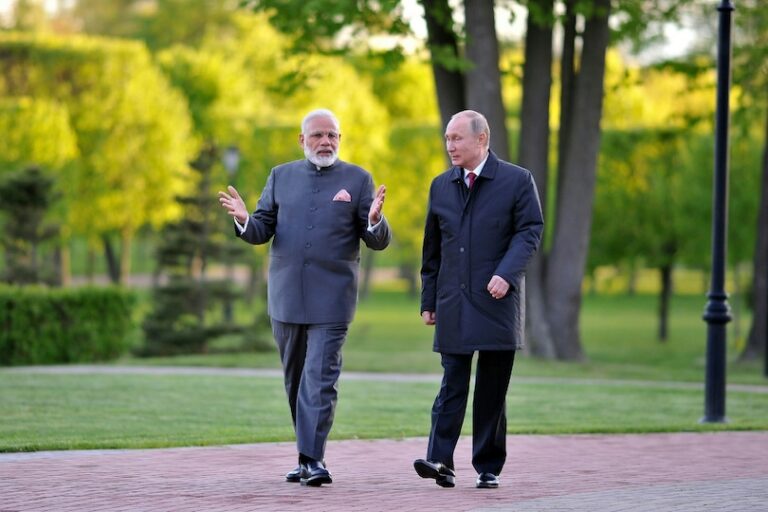“On hearing the word Russia, the first word that comes to every Indian’s mind is ‘India’s companion in weal and sorrow’. This is how Indian Prime Minister Narendra Modi describe India-Russia relations. Modi’s visit to Russia began with his arrival in Moscow on July 8, 2024, to attend the 22nd annual India-Russia summit. During the visit, Modi sought to promote peace and strengthen bilateral relations, culminating in the signature These are nine agreements covering various sectors including defense, energy and trade, emphasizing multifaceted cooperation between the two countries.
Modi’s decision to choose Russia for his first bilateral visit over a neighbouring country marks a break with tradition. It signals a change in India’s diplomatic approach and reflects a change in style and method on India’s part. In terms of message and timing, Modi’s visit to Russia is of considerable significance. It is worth noting that the visit comes in the backdrop of the ongoing war between Russia and Ukraine, where India has maintained a neutral stance. India has abstained from voting on UN resolutions condemning Russia’s actions but has also called on Russia to end the war. In his meeting with Putin, Modi made it clear that there can be no conflict between Russia and Ukraine. that “There is no solution on the battlefield” and called for a diplomatic end to the war.
The visit comes after Modi’s participation in the G-7 summit in Italy, where he engaged with Ukrainian President Zelenskyy and other leaders. The visit coincides with the signing of the North Atlantic Treaty Organization (NATO) agreement meeting in Washington, DC, to mark the 75th anniversary of the alliance. Modi’s visit was criticalincluding by the Ukrainian president, who called the visit a “big disappointment.” The Indian prime minister is aware that the decision to meet Putin now would not have pleased Western leaders, especially given the ongoing NATO summit. The Kremlin was quick to point this out and suggest that “the West is jealous.” Jealous or not, you can bet that Western countries, especially the United States, will be watching the visit closely.
Modi also made a veiled statement critical He highlighted India’s role in the emerging multipolar world. He said today’s world required “more confluence than influence”, stressing the need for collaborative approaches rather than exercising dominance.
The visit underscores the continued importance of Russia as a key partner and friend of India. It dispels speculation that India-Russia relations are deteriorating due to India’s reduced reliance on Russia and its strengthening ties with the United States and the West. Despite India’s growing rapprochement with the United States in recent years, India-Russia relations remain a “special and privileged strategic partnership.” This dynamic reflects India’s skill in managing its relations with the United States and Russia, which reflects its strategic autonomy. It sends a signal that India will continue to cultivate closer ties with the West, but not at the cost of having to choose sides.
While India-Russia ties are historical, they are not merely sentimental and ceremonial. In the current geopolitical context, where Russia is increasingly aligning with China, it is essential for India to assess its relations with China. “No limits” Partnership. Recent meetings between President Putin and President Xi have characterized their relationship as the “best period in history” and have underscored the importance of Russia-China bonhomie for India. India seeks to ensure that Beijing does not become a factor that undermines its relations with Russia. India hopes that Russia’s leverage can be leveraged in the case of China’s adventurism as well as the Indian border, as Russia is an important geopolitical cover for India in the current world order. Therefore, the “China factor” is an important driver of India’s close association and cooperation with Russia. Conversely, relations with India provide Russia with strategic room to maneuver. Russia recognizes that increased reliance on China may not be in line with its broader interests, and thus, maintaining strong ties with India is a critical element of its foreign policy.
In a rapidly changing global context, India’s ability to engage with the West and Russia while pursuing its own national interests is a testament to its strategic autonomy and multi-alignment approach. By engaging with Putin, Modi is making clear that Russia remains a priority for India and that this partnership is unlikely to change in the near future.
Further reading on electronic international relations


